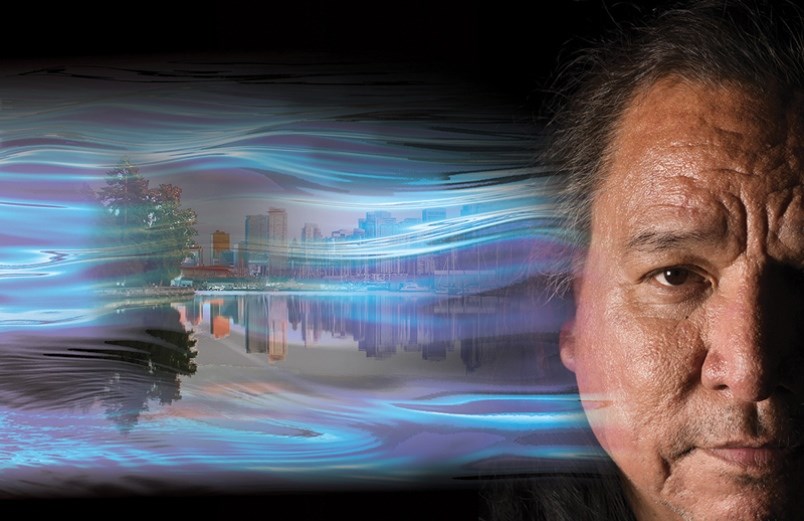In order to build up tolerant and empathetic attitudes towards truth and reconciliation, it’s important to break down walls.
Vancouver’s Theatre for Living, like many of the productions it’s put on over the last 36 years, takes this approach with a new play it’s had underway at the Firehall Arts Centre in the Downtown Eastside since March 2.
That new play is called šxʷʔam̓ət, a Coast Salish hən̓q̓əmin̓əm̓ word that translates to “home.”
Renae Morriseau, the play’s associate director, says part of what makes the production a success is its desire to bring the audience into the fold.
“We want people to interact with the subject matter we’re bringing up,” she says.
And šxʷʔam̓ət (home) lets the audience interact with its subject matter by breaking down walls — fourth walls, the “wall” separating audience and actor, that is.
The production was originally workshopped and created by a cast of seven diverse individuals from across the country under the direction of David Diamond.
The actors and production team met up over the course of two and half weeks to create the unscripted play through a series of dialogues about the kinds of characters and scenarios they wanted to develop.
Throughout the show, the cast of indigenous and non-indigenous actors asks the audience to consider what reconciliation really means through scenes, stories and conversations.
According to Morriseau, the play keeps building tension, asking questions, but never offers any concrete resolutions.
This is when the fourth wall breaks down.
After an initial viewing, the play is then run again with audience members given the opportunity to “freeze” the action at any moment where they see a character engaged in a struggle, subsequently offering that character a solution, or just another perspective.
It’s a daunting, complex proposition for live theatre, but it’s one that Morriseau sees as important.
“When you are able to create a play that has a fourth wall… you create a distance,” she says. “But interactive theatre, or in forum theatre, we break that wall down and we invite the audience to come and take the place of a person that they resonate with and that they want to give voice to, which is also a place of safety.”
The play’s unorthodox structure is typical of Theatre for Living, an experimental production company that for decades has used interactive stage techniques to tell stories about communities and offer dialogues for social justice and change.
In the last many years, reconciliation has played a major role in public discourse at the local and federal level in Canada.
In 2014, for example, the City of Vancouver officially declared that the city is on unceded Aboriginal territory; and in 2015 the Truth and Reconciliation Commission released its report and recommendations on the abuses suffered by many generations of indigenous peoples due to the residential school system.
But šxʷʔam̓ət (home) calls into question what these declarations actually mean, and suggests that real change cannot necessarily be legislated or summed up in a report.
Truth and reconciliation, it is apparent, can be part of the public discourse through the arts as well.
“When you come to a place in our lives when attitudes and behaviours are challenged, our moral code is challenged, we always have a choice of taking it to a place of tolerance,” Morriseau says.
She believes that theatre can create a powerful mechanism for social change. Her work with Theatre for Living, and through other artistic mediums, is a testament to this belief.
“Especially with šxʷʔam̓ət (home), the intention is that we create a story we hope resonates with many people — native, non-native, immigrants that make Canada their home,” she says.
Theatre for Living is putting on the final performance of šxʷʔam̓ət (home) Saturday, March 11 at 7:30 p.m. The final performance is being televised live over the Internet, giving the audience the ability to watch and interact with the show on a global scale. A link to the webcast can be found here.
šxʷʔam̓ət (Home), Theatre for Living production at Firehall Arts Centre, until March 11. For more information, visit theatreforliving.com.



